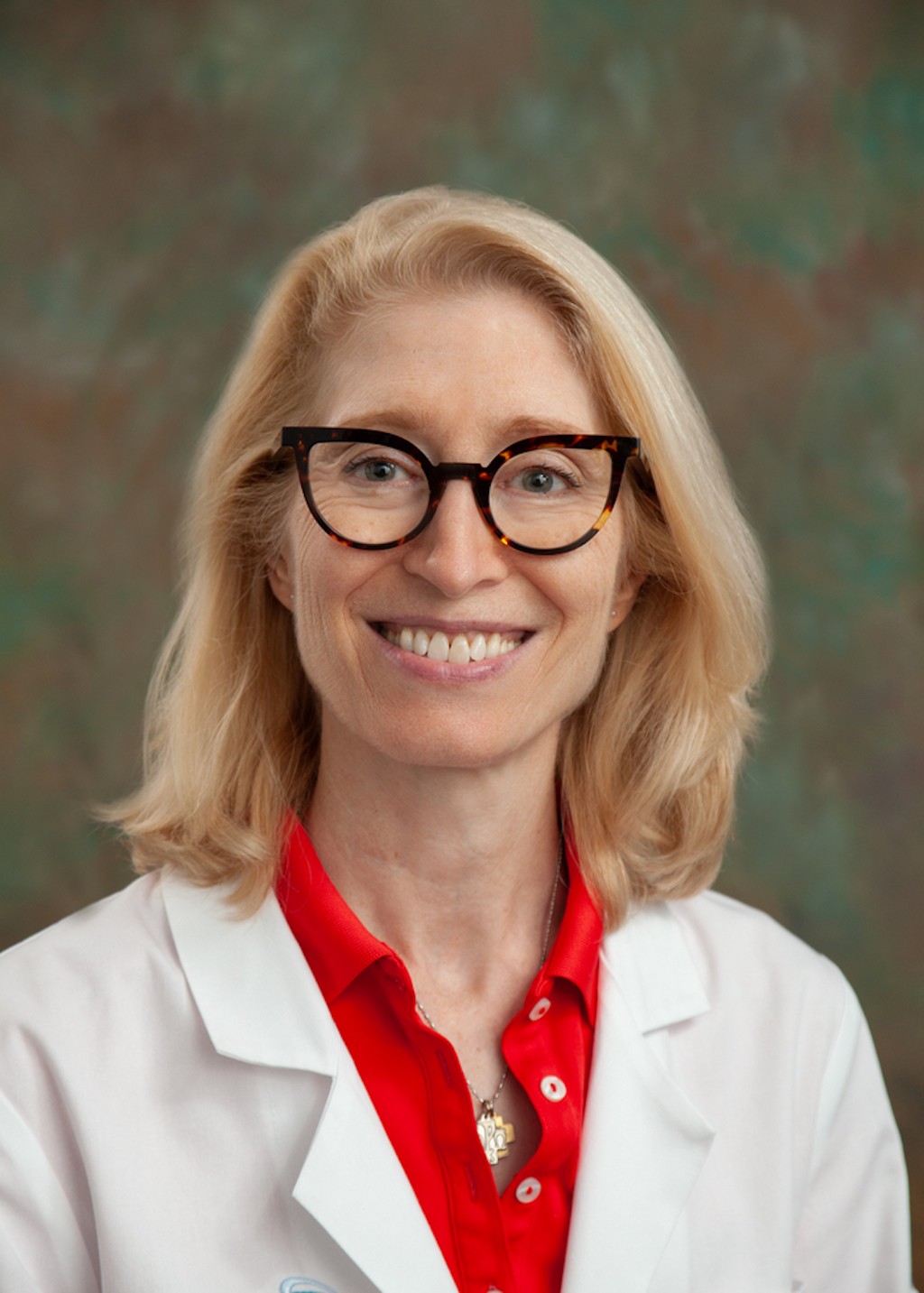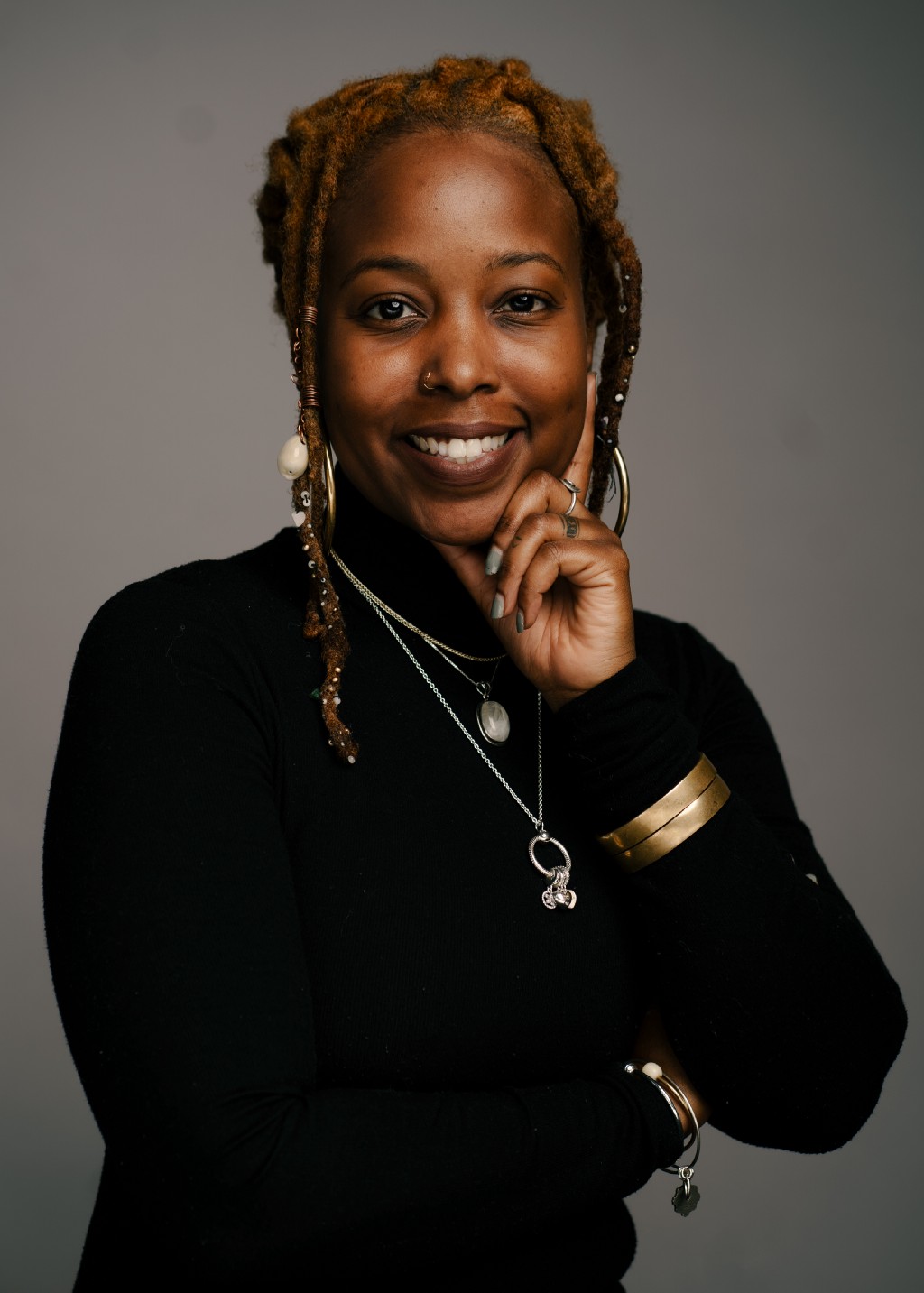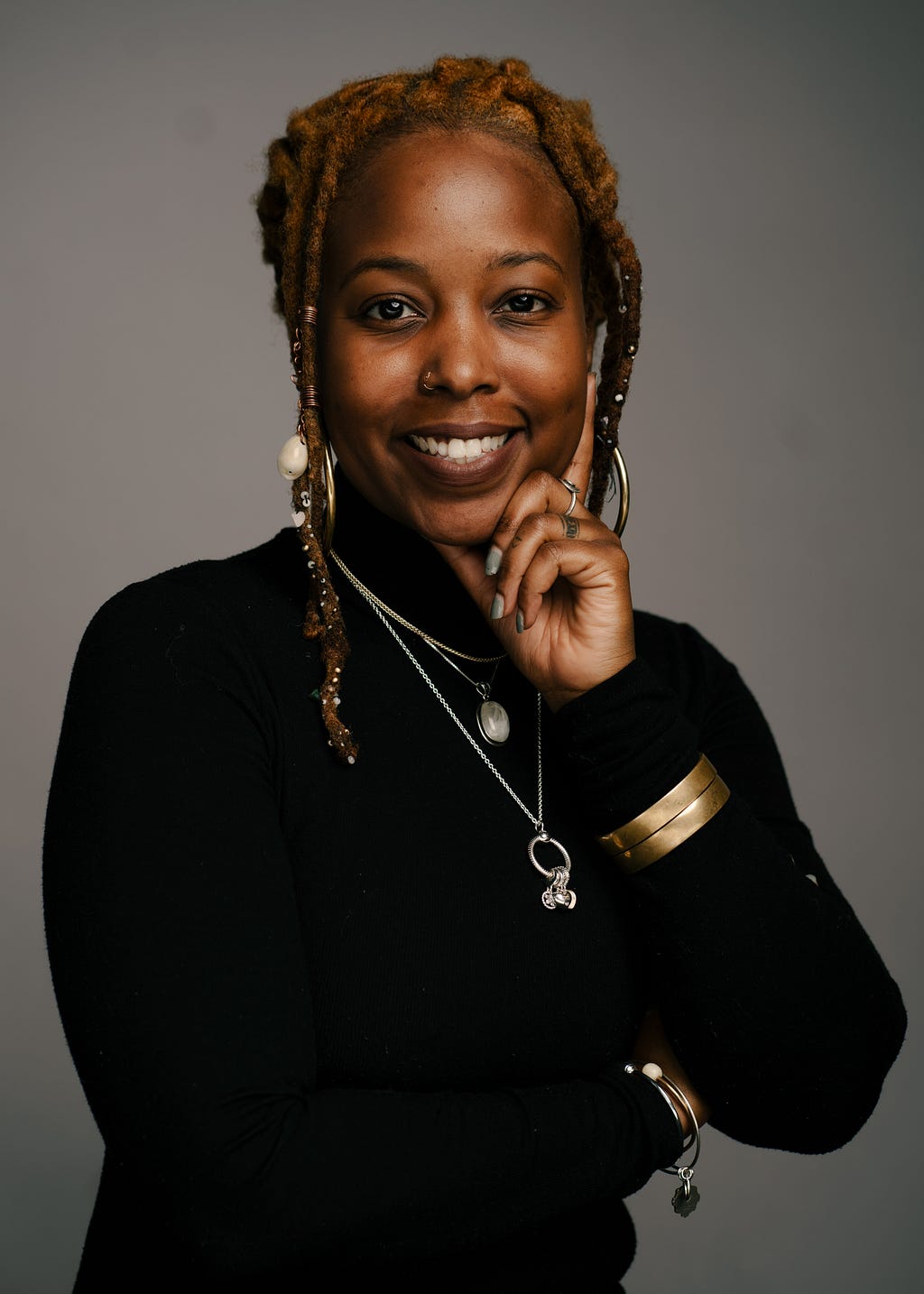Women In Wellness: Dr Kathryn Bass of Carilion Clinic On The Five Lifestyle Tweaks That Will Help Support People’s Journey Towards Better Wellbeing
An Interview With Candice Georgiadis
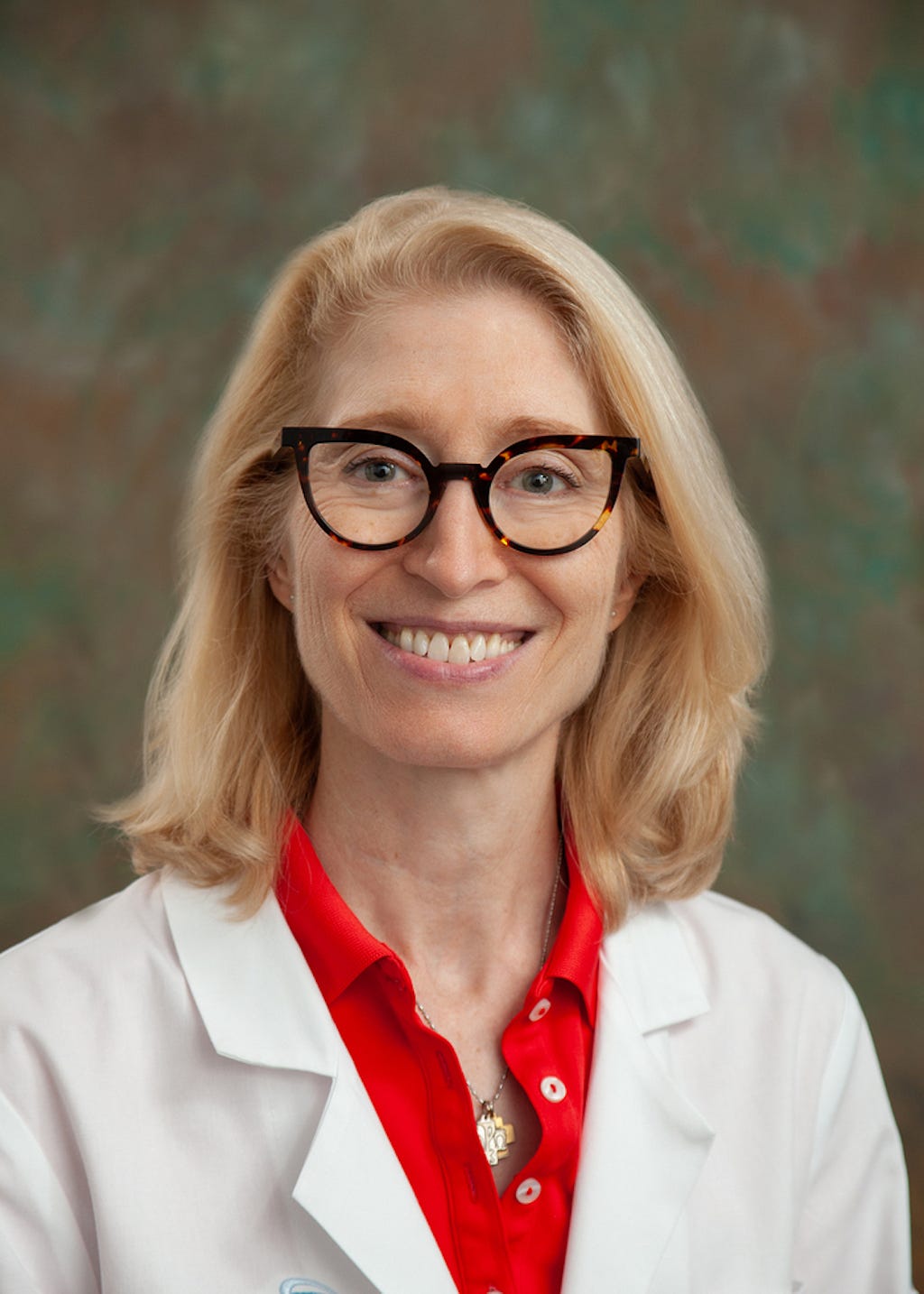
Build a network and lean on the help of your other colleagues — whether they’re more experienced or in your class. Don’t go it alone. You can build an island for yourself, and that’s a lonely place to be. I do think surgeons, in general, tend to have a more insular personality type. But you can build a supportive community once you start talking to others. That synergy between colleagues gives access to community, health, happiness, and productivity.
As a part of my series about the women in wellness, I had the pleasure of interviewing Dr. Kathryn D. Bass.
Kathryn D. Bass, MD, is a Pediatric Surgeon at Carilion Clinic in Roanoke, Virginia. Graduating from medical school with honors at Northwestern University of Chicago in 1989 — Dr. Bass has studied and practiced pediatric surgery for more than 20 years, leading her to become one of the most trusted experts in her field. Over her career, Dr. Bass has completed hundreds of successful pediatric surgeries and instructed dozens of fellow surgeons in her field to improve the lives of children and their families.
In addition to being a fellow of the American College of Surgeons and being certified in both general and pediatric surgery by the American Board of Surgery — Dr. Bass was honored to be recognized by her peers as a “Top Doctor” in Western New York for more than a decade and she has served in numerous leadership roles for health systems across the U.S., including Professor of Surgery, Director of a Level 1 Pediatric Trauma Center, and Co-Director of a Pediatric Wound Care Center.
Thank you so much for joining us in this interview series! Our readers would love to “get to know you” better. Can you share your “backstory” with us?
I come from a large family — I grew up the seventh of nine children. After my dad, a Navy man, returned from his time in the service, he moved to Chicago, Illinois and met my mother dancing in USO halls. The rest, as they say, is history.
Throughout my childhood, my parents impressed upon us that education is a tool for advancement, a vision they instilled in my siblings and me. My mom had two years of high school education, and my dad put himself through two years of college by climbing telephone poles. He worked for Illinois Bell and ended up getting his electric cable certification. My parents were also profoundly religious and dedicated to giving their gifts back to the world. Their commitment to giving back shaped my core values — and is probably one of the most significant driving forces behind why I am a pediatric surgeon today.
My sisters were educators, and my brothers were scientists and engineers. I followed in my brothers’ footsteps and began my academic career at Northwestern University outside of Chicago, Illinois — earning a bachelor’s degree and pursuing a Ph.D. in biomedical engineering. I had a desk job creating oxygenators for open heart surgery for some time. When a research opportunity took me to a rehabilitation institute, I worked directly with patients who had suffered from strokes. From that moment forward, I fell in love with the practice of medicine — especially the human interaction of it all. I returned to school for medicine and have dedicated myself to patient care ever since.
Trauma treatment became the core of my work and focus as I continued to rise the ranks and advance in my degrees. If you’re interested in the medical care of children, you need to be able to handle trauma, as it’s the number one morbid event to happen to children.
I assisted in starting the first trauma surgery centers for The Floating Hospital for Children in Boston, Massachusetts, where I completed my general surgery training at Tufts University, and in Denver, Colorado, where I further specialized and completed my pediatric surgery training at the University of Colorado. I then returned to my hometown of Chicago, to help get the Cook County Children’s Hospital pediatric trauma center accredited.
After spending some time abroad providing medical care in the Philippines, I then relocated to Texas to provide pediatric general and trauma surgery at Cook’s Children’s Medical Center in Fort Worth. While in Texas, I was then recruited to Buffalo, New York and began serving at the John R. Oishei Children’s Hospital . For the next decade, I helped get the medical center’s trauma system accredited at a higher degree, directed the Pediatric Wound Care Center at Oishei Children’s Hospital, and also trained fellows in pediatric surgery in the Buffalo, New York area. I met so many wonderful and talented colleagues there and was honored to have been recognized by my peers as being one of the “Top Doctors” in Western New York in from 2010- 2019.
After traveling around the country developing my expertise and trying to have as much of an impact as possible — while also raising my children and earning an executive MBA from Northwestern — I recently relocated to Roanoke, Virginia, with the opportunity to build a new program and help lead the trauma system here. I also have the profound honor of returning to the teaching of medicine — my students at Virginia Tech Carilion School of Medicine teach me as much as I teach them and expand my worldview.
Can you share the most interesting story that happened to you since you started your career? What were the main lessons or takeaways from that story?
I have always loved the film “It’s a Wonderful Life,” and its theme of how difficult it is for someone to imagine the impact they have on those around them. Well, I actually had an “it’s a wonderful life” moment a few years ago that stands out. In 2018, on a recruiting trip at a medication institution, I spoke with many people. One of my interviewers relayed to me that one of their well-respected surgeons said I was the person who inspired him to pursue his career in medicine and that he was the biggest cheerleader for my hiring. This surgeon was one of the many students I had in my class every six weeks over the course of ten years, and in spite of the fact that I didn’t remember him clearly — I had seriously influenced his career choice.
At that moment, I felt humbled. It reminded me how precious every interaction is when connecting with other people. You never know how you may end up impacting someone’s life in some way, in serious matters or trivial passings. The surgeon my interviewer mentioned has become a phenomenal pediatric surgeon and pursued his MBA, also.
Now, having practiced medicine for more than 25 years, I think more often about how all the small moments in my career may have made a positive difference in my colleagues’ lives. I think of ways where I’d like to leave a sense of legacy — doing my part to help nurture the next generation of surgeons and move our collective body of knowledge forward. I am proud of what I have accomplished, but of course, I feel there is always more work to be done.
Can you share a story about the biggest mistake you made when you were first starting? Can you tell us what lesson you learned from that?
If I could go back and give my younger self a piece of advice, I would undoubtedly advise seeking the help and guidance of other female surgeons. When I began my career, I was typically the only female surgeon in the room. The culture and whole field of medicine back then was very male-dominated, and work productivity came first with little regard to the many responsibilities that often fall on women outside work. As a working mom, sometimes I had to pick up my kids from daycare. I didn’t have the support that comes from conversing with others who were going through similar experiences that I was. I ended up with a lot of self-criticisms of not being able to “do it all.” I never thought I wouldn’t eventually do it all; I just knew I couldn’t do it all at that moment and it was frustrating at times.
As a hard worker, I focused very intensely on my study and work in pediatric surgery and rose quickly, even in my first role. Many responsibilities fell on my plate — and when you do something, and do it well, you get another job to do. I quickly became Associate Chairman in a department with 100 surgeons in my first role. It was challenging — not necessarily because of the caliber of the work itself, but because I didn’t lean on my colleagues as much as I should have. I didn’t appreciate the value of networking at that time. I know I would have benefited from the advice and support of other women facing the same hurdles.
A significant part of my current role as a division leader is to remind staff that while we are a work family, we each have our own family at home — whether it’s a partner, children, pets, or friendships to nurture. People’s families and lives outside work also need to be valued and respected. I remind others that it’s OK to voice their needs and negotiate how a place of business can best support them and respect their boundaries — it plays into their overall healthiness and ability to contribute effectively to the field. As a division leader, I need to know my team’s needs, how I can help ensure they are met, and how to help foster community.
My biggest mistake early on was that I suffered in silence. I certainly got through it, but I don’t want other women to have to learn the hard way. I’ve made it a part of my focus to help remove that barrier for younger women in my field. The program I am in now comprises a larger group of female and pregnant residents. It is much more inclusive and accommodating in a way that helps surgeons harness their talents, but we certainly have more to do.
Let’s jump to our main focus. When it comes to health and wellness, how is the work you are doing helping to make a bigger impact in the world?
Over the years, it has become increasingly clear to me that my role as a pediatric surgeon is not simply limited to providing patient care in the operating room — it’s also to ensure children can live happily, securely, and well beyond the doors of the hospital.
I am part of a growing group of pediatric surgeons advocating for gun reform. Firearms have become the leading cause of child deaths from ages one to 18, surpassing car crashes and overdoses. If surgeons stand back and stay silent on this issue, we will continue to operate on children who have needlessly suffered gunshot wounds — including children we may not be able to save in many cases. We need to charge at the root cause of this serious problem. Twenty-five years ago, when high-powered firearms weren’t so prevalent within communities, I saw fewer patients affected by gun violence. Now, I’ve treated too many gun victims to remember. I’ve lost count.
I feel the care that surgeons provide should go beyond our medical practice. We must go beyond simply focusing on the patient’s wellbeing when they’re in our care and, instead, use our voices to fight for a world that ensures their wellbeing in daily life. Throughout my work with the American Pediatric Surgical Association over the past eight years, my colleagues and I have expanded our mission beyond saving the patient’s physical body and preserving families to look at communities and widespread societal concerns. I’m proud to have been one of many on a team of surgeons that advocate for our association to examine significant issues, like gun control and racial equity — important factors that play into total health equity.
Historically, medical professionals have been comfortable standing back and focusing on our patients. But when you take care of a child, you’re taking care of a whole child — not just their heart or lungs, but also their space in the world. You are committing to investing in a healthy life for them. Many of my colleagues and I have come together with a common voice to say: enough is enough — we need change, and we are going to advocate for it.
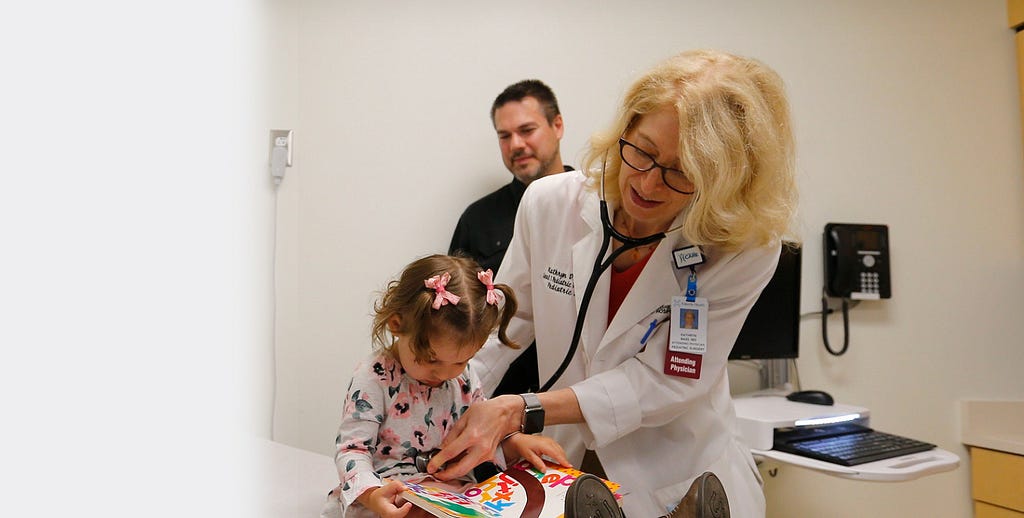
Can you share your top five “lifestyle tweaks” that you believe will help support people’s journey towards better wellbeing? Please give an example or story for each.
I can only recommend the habits that work well for me. My research expertise isn’t in wellness, but I have discovered what helps keep me centered and healthy over the years.
Firstly, I give myself breaks. I could not see as much tragedy and trauma as I see without doing so. Especially with the rise in gunshot wounds in children in recent years, I learned to give myself the space to grieve and preserve my humanity. I could not do what I do without this.
Secondly, I utilize scientifically proven techniques that help us feel better, like deep breathing. Our body responds well to deep breathing. Enabling that airflow often causes a reduction of stress in the body. I slow down and take deep breaths when I feel myself start to become overwhelmed in stressful moments.
On that note, I take the time to keep my body healthy. I move and stretch. As an endorphin junkie, I love endurance. I used to run, but after I injured a spinal disc, I now bike as my physical activity of choice. The data show us that taking care of our bodies is key to physiologically releasing stress.
I also spend time in nature — it is a divine universe. I step outside and remind myself how magical and timeless our physical surroundings are. Getting out and taking in the majesty of the universe is so important, especially in a profession where I see so much destruction and the deepest levels of hurt.
The last thing that I recommend is to give gratitude to the little things throughout your day. Every day, I try to recognize three reasons to be grateful and give thanks to them in the moment. It can be as simple as finding a parking space next to the door. It can be interactional, like a patient interaction that leaves me with a smile — during these instances, I always try to thank the patient for making my day. Then, before I go to sleep at night, I make a record and review the highlights of what I’m grateful for that day. Giving thanks for life’s joys has become a crucial tool in resetting stress.
If you could start a movement that would bring the most amount of wellness to the most amount of people, what would that be?
I would point everyone to Viktor Frankl’s “The Meaning of Life.” An Austrian psychiatrist, neurologist, philosopher, and writer who survived Auschwitz, Frankl wrote about three tenants to confront adversity.
First, to spend each day with a purpose in their work. I tell my residents daily that we never have to worry about finding this. We wake up, come to work, and do something incredibly important. Second, invest in relationships — with other people, nature, pets, etc. Invest in putting your spirit in communion with other people in this world. Third, recognizing that suffering is universal and a part of being human. What we make of the suffering and our ability to find meaning in the suffering allows us to transform. We no longer suffer when we figure out that we’ve learned — something that will push us forward in a positive way.
I think that the broader question of why some people are happy and others aren’t can come down to these three concepts.
What are your “5 Things I Wish Someone Told Me Before I Started” and why?
- Build a network and lean on the help of your other colleagues — whether they’re more experienced or in your class. Don’t go it alone. You can build an island for yourself, and that’s a lonely place to be. I do think surgeons, in general, tend to have a more insular personality type. But you can build a supportive community once you start talking to others. That synergy between colleagues gives access to community, health, happiness, and productivity.
- Learn how to advocate for yourself. You have to be your best advocate because there’s no guarantee anyone else will be.
- Find mentors and sponsors. A mentor will help you figure out what to do, and a sponsor will help you figure out how to get there. A sponsor is the one sitting at the table, mentioning you as a good fit for the job and helping to open doors for you.
- Get coaching. Coaching will teach you how to set goals and reflect on how to reach them. You can know how to get to where you want to be on an intellectual level, but until you center your goals and hold yourself accountable, you may not make time for them. If you set up a coaching relationship, you’ll help force yourself to focus.
- Make family and relationships a priority. There’s no point without them. What does the positive impact of our careers matter if we do not positively impact our loved ones?
Sustainability, veganism, mental health and environmental changes are big topics at the moment. Which one of these causes is dearest to you, and why?
Of course, supporting sustainability, veganism, mental health, and advocating for the environment are all essential and intertwined. While I have experience in all (I am a vegan and try to be aware of and respectful of sustainability, especially in healthcare), mental health is where my heart is right now.
Having gone through the pandemic and living through the disruption and stress on the healthcare system, I have seen how it looks when staff is burnt out and how our mental health can crumble if we don’t prioritize ourselves properly. I strive to be the person in my division and system that is keeping a space for us all to take a break, take a breath, take care of our bodies physically, and get the time we need to recharge regularly. I also care deeply about the mental health impact on all children whose lives have been disrupted and the depression and anxiety that affects us when we are isolated and cannot be in community. It has been an inexplicably hard two years for all of us. We are getting there, but we’re still not out of it.
What is the best way for our readers to further follow your work online?
For the latest news and updates on Dr. Kathryn D. Bass visit her official webpage, or follow Dr. Bass on her LinkedIn, Twitter and Facebook. z
Thank you for these fantastic insights! We wish you continued success and good health.
Women In Wellness: Dr Kathryn Bass of Carilion Clinic On The Five Lifestyle Tweaks That Will Help… was originally published in Authority Magazine on Medium, where people are continuing the conversation by highlighting and responding to this story.


